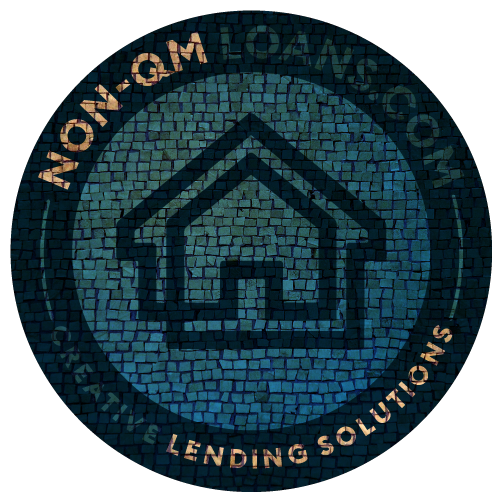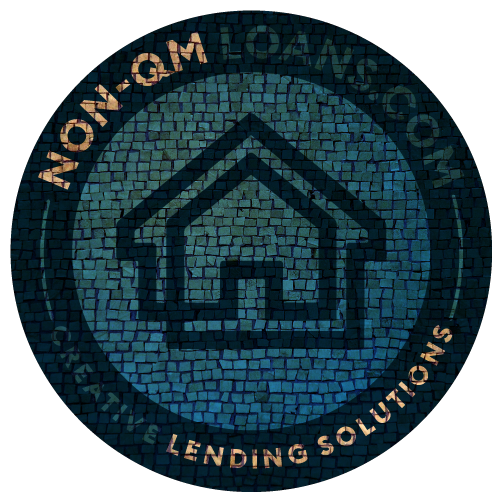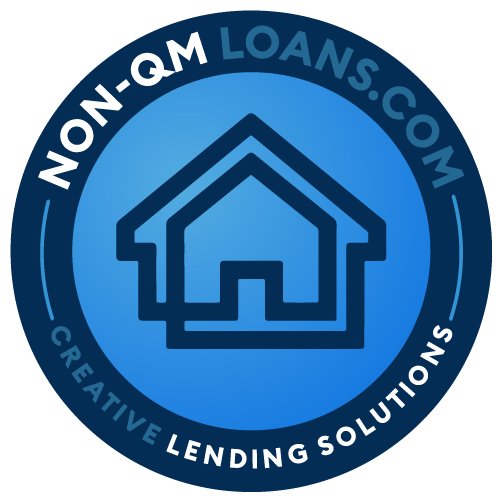How Self-Employed Borrowers Can Qualify for a Mortgage Without Tax Returns
Getting a Mortgage When You’re Self-Employed

Being your own boss comes with freedom, flexibility, and unlimited earning potential—but it also makes getting a mortgage more complicated. Traditional lenders require W-2s, pay stubs, and tax returns, which can make it hard for self-employed borrowers to qualify if they maximize deductions or have fluctuating income.
The good news? Non-QM mortgage loans like Bank Statement Loans, 1099 Loans, and P&L Loans allow you to qualify using alternative income verification methods. No W-2s. No tax returns. Just a straightforward way to get approved for a home loan.
Let’s break down the best mortgage options for self-employed borrowers in 2025 and help you take the next steps toward homeownership!
1. Bank Statement Loans – The Best Mortgage for Self-Employed Borrowers
What is a Bank Statement Loan?
A Bank Statement Loan allows you to qualify for a mortgage using 12-24 months of personal or business bank deposits instead of tax returns. It’s designed for self-employed professionals, freelancers, and business owners who have strong cash flow but may not show high taxable income.
✔ No W-2s or tax returns required – Just bank statements!
✔ Best for self-employed borrowers, entrepreneurs, and small business owners.
✔ Available for primary homes, investment properties, and second homes.
Bank Statement Loan Requirements
✔ Min Credit Score: 660+
✔ Max LTV: 85%
✔ Loan Program: Bank Statement Loan
⏳ Pro Tip: If you have high business expenses, a Bank Statement Loan helps you qualify based on actual deposits, not your taxable income.
2. 1099 VOE Loans – For Independent Contractors & Commission-Based Workers
What is a 1099 VOE Loan?
A 1099 Verification of Employment (VOE) Loan allows independent contractors, gig workers, and commission-based earners to qualify for a mortgage using their 1099 income instead of tax returns.
✔ Perfect for independent contractors, gig workers, and commission-based professionals.
✔ No tax returns required—just 1099 forms and a VOE from your employer.
✔ Higher loan amounts than traditional loans due to flexible income calculations.
1099 Loan Requirements
✔ Min Credit Score: 660+
✔ Max LTV: 85%
✔ Loan Program: 1099 VOE Loan
⏳ Pro Tip: If you earn money through multiple 1099 jobs, lenders can combine your earnings for higher loan qualification amounts.
3. P&L Loans – For Business Owners with Strong Cash Flow
What is a P&L Loan?
A Profit & Loss (P&L) Loan lets you qualify for a mortgage using a CPA-prepared Profit & Loss Statement instead of tax returns or W-2s. This is a great option for business owners who have high revenue but maximize tax deductions.
✔ No tax returns required – Just a CPA-prepared P&L statement!
✔ Ideal for business owners with strong cash flow.
✔ Flexible income documentation for self-employed professionals.
P&L Loan Requirements
✔ Min Credit Score: 660+
✔ Max LTV: 85%
✔ Loan Program: P&L Only Loan
⏳ Pro Tip: A P&L Loan can be a powerful mortgage solution if your tax returns don’t reflect your actual business income.
Frequently Asked Questions (FAQ)
Can I get a mortgage without tax returns?
Yes! Bank Statement Loans, 1099 Loans, and P&L Loans allow self-employed borrowers to qualify for a mortgage without providing tax returns.
What’s the best mortgage for self-employed borrowers?
✔ Bank Statement Loans are the best option for business owners and self-employed professionals.
✔ 1099 Loans work well for contractors and commission-based earners.
✔ P&L Loans are ideal for business owners who maximize tax deductions.
What credit score do I need to qualify?
Most Non-QM loans for self-employed borrowers require a minimum 660 credit score.
Can I buy an investment property with a self-employed mortgage?
Yes! Bank Statement Loans, 1099 Loans, and P&L Loans allow you to purchase primary homes, second homes, and investment properties.
How quickly can I close on a self-employed mortgage?
✔ Non-QM loans typically close within 3-4 weeks, depending on documentation.


